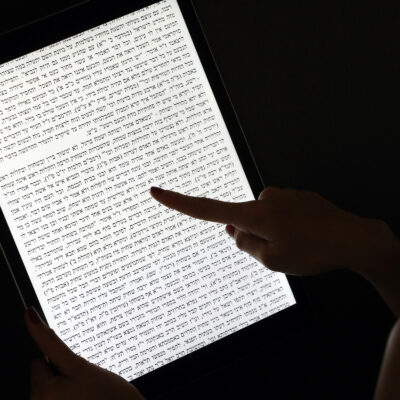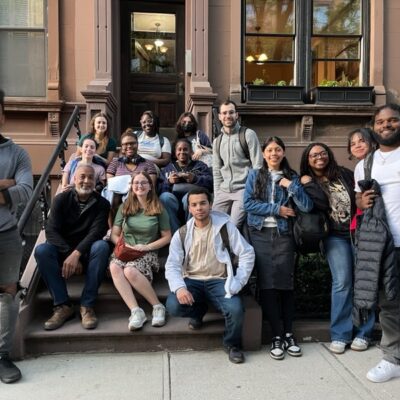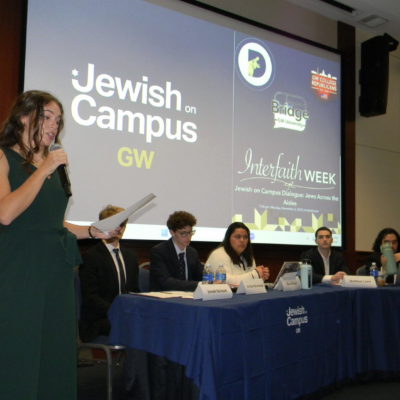Opinion
UPenn donors were right
After last week’s mass exodus of influential donors and board members from the University of Pennsylvania amidst allegations of a systemic failure to combat antisemitism on campus, you might have thought that the leadership of the school would take some time for serious introspection. Instead, on Oct. 19 the tri-chairs of UPenn’s faculty senate released a statement that not only essentially proved the donors’ points, but further made the case for others to pull funding.
The statement was academically ignorant, self-righteously tone-deaf and mildly antisemitic — much like UPenn itself these days, as many would argue.
The tri-chairs wrote to affirm “their commitment to freedom of thought, inquiry, and speech…foundation values [that] are being threatened by individuals outside of the University who are surveilling both faculty and students in an effort to intimidate them and inhibit their academic freedom.” Their framing of the situation, however, displays a shockingly fundamental misunderstanding of the very values they claim to hold dear.
When it comes to the First Amendment, the freedom of speech — even offensive speech — must be cherished and protected. But others are allowed to speak as well, including with their money. It is absurd to think that it is “intimidation” for a donor to hold a school accountable for the things that it does and does not say or do. It is also bizarre to sinisterly accuse them of “surveillance” because all of UPenn’s missteps have been painfully public and repeatedly defended.
For the record, academic freedom does not mean what the tri-chairs think it does, either. As the U.S. Court of Appeals for the 6th Circuit succinctly explained in Bonnell v. Lorenzo (2001), “While a professor’s rights to academic freedom and freedom of expression are paramount in the academic setting, they are not absolute to the point of compromising a student’s right to learn in a hostile-free environment.” Title VI of the Civil Rights Act of 1964 prohibits institutions of higher education from creating a discriminatory or hostile environment for any student on the basis of race, color or national origin. Speech crosses over from protected territory into harassing verbal conduct when it is “sufficiently severe, pervasive, or persistent so as to interfere with or limit the ability of an individual to participate in or benefit from the services, activities, or privileges provided by a [university].”
In 2004, the Department of Education’s Office of Civil Rights issued a series of policy statements clarifying that although religion is not a protected class under Title VI, the department would investigate antisemitism complaints to the extent that they also implicate ethnic or ancestral bias — for example, discriminatory harassment based on a real or even just a perceived connection to the State of Israel. This policy (known as the Marcus Doctrine after its author, Kenneth L. Marcus, the then-deputy assistant secretary of education for enforcement) is the Title VI policy of the federal government, which uses the International Holocaust Remembrance Alliance (IHRA) working definition of antisemitism to evaluate complaints involving allegations of anti-Jewish conduct. Donors are not the only ones the tri-chairs should be worried about: that same federal government gives millions of dollars annually in aid and grants to the school, all of which is contingent upon UPenn fulfilling its affirmative obligation under Title VI to ensure that everyone, including Jewish students, has a harassment-free educational environment to learn in.
Among other things, UPenn recently hosted the Palestine Writes “literature festival” over the Jewish High Holy Days, which many felt created a hostile environment that normalized antisemitism. Speakers at the conference, for example, openly advocated for the ethnic cleansing of the Jews “from the river to the sea,” a slogan of the U.S. designated terror organization Hamas. And then, when murderous ethnic cleansing of Jews in Israel actually happened two weeks later, the school was slow to condemn it as terrorism.
To review: The school held its antisemitic conference and kept fairly quiet, despite the Jewish community begging them to at least openly disavow the hatred. No one stopped them. The administration made their tepid statements after the Hamas terrorist massacre, and no one interfered with their internal process. Freedom of speech has been maintained at all times, but it does have real-life consequences — just like advocating for “decolonization” and “resistance by any means” without caring what that actually entails has real-life consequences for dead Jewish babies and for live Jewish students, some of whom are afraid to safely express their Jewish identity on campus.
The faculty tri-chairs can probably imagine, using that precious freedom of thought and inquiry of theirs, why both Jewish and non-Jewish supporters are using their own freedom of speech to walk away in disgusted protest.
The fact that they are so surprised and indignant that anyone dare challenge their assumptions and moral superiority speaks of an even deeper academic freedom issue: a shift from education to indoctrination. To be clear, academic freedom does not extend to expression that fails to meet even basic professional standards, like some of the drivel that was spoken at the recent conference. But even if it did, permitting faculty to shut down an open exploration of alternative viewpoints is to actually violate all that “academic freedom,” properly interpreted, ought to protect.
And yet, as happens all too often when Jewish people complain of antisemitism, the faculty has tried to pull the classic “prejudice pivot,” i.e. they are now accusing the people they have been steadily silencing of trying to silence others. This perverse victim-blaming tactic does not usually occur in instances involving other forms of discrimination, where the general inclination is typically to believe the accuser — or at the very least, to investigate on the assumption that a complaint was made in good faith. The phenomenon happens so often when people call out antisemitism that it even has its own name: the Livingstone Formulation. Incredibly, the UPenn faculty went even one step further in their statement, proudly proclaiming that they cannot be “bought or sold by those who seek to use their pocketbooks to shape our mission.” At least the classics department is still teaching something, even if it is just The Protocols of the Elders of Zion.
Of course, it is easier to fall back on antisemitic tropes and blame it on the Jews and their allies and their “pocketbooks” of gold than to acknowledge any wrongdoing. But the fact that a statement designed to defend against claims of antisemitism actually did that is all the more reason why people like Marc Rowan, and others who are using their speech to call it out, should be celebrated.
Aside from knowing where not to give, it is also important to reflect on where all of that money should be spent. Donors should be looking to other schools, schools whose administrations have displayed the type of simple moral clarity and leadership needed to call out antisemitism. They should use this moment to endow departments, chairs and journals that will produce the kind of actual balanced scholarship that might yet help undo all the harm that UPenn and others like it have wrought on the ivory tower.
Academic freedom should be supported, as a means to finding truth — not, as UPenn faculty apparently believe, a defense against having to tell it. Donors can and should take those very funds they would have given to UPenn and use them to support people and institutions that are willing and striving to do better.
A former law professor, Mark Goldfeder is the director of the National Jewish Advocacy Center. @MarkGoldfeder on X.

 Add EJP on Google
Add EJP on Google









